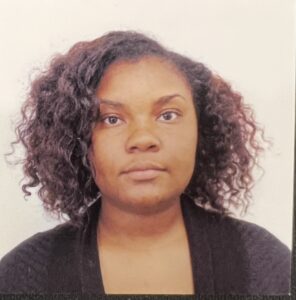-
Place of Birth
Texas
-
Tribal Affiliation
Shabtau
-
Surname Heritage
Scotland/ England
Weatherspoon History, Family Crest & Coats of Arms

Dalriada, in ancient Scotland, is where the name Weatherspoon evolved. It was a name for someone who lived in various places throughout Scotland. It may have been a habitation name from a now lost place name, thought to come from the Old English terms wether, which means “sheep,” and “spong,” or from spang, which means “a narrow strip of land.” [1] Habitation names form a broad category of surnames that were derived from pre-existing names for towns, villages, parishes, or farmsteads.
Early Origins of the Weatherspoon family
The surname Weatherspoon was first found in Renfrewshire (Gaelic: Siorrachd Rinn Friù), a historic county of Scotland, today encompassing the Council Areas of Renfrew, East Renfrewshire, and Iverclyde, in the Strathclyde region of southwestern Scotland.
The first record of the family was found c. 1290 when Roger Wythirspon, clerk, attested a grant by James the High Steward of lands in Renfrew. [1]
The family acquired business interests in Glasgow, and also were tenants of the Cupar Angus Abbey.
In 1496, a payment was thus noted: “Widderspune the foulare that tald talis and brocht foulis to the king.” Later, John Wyddirspwn was tenant of Dalbeth in 1518 and a tenant of Cupar-Angus Abbey, c. 1500, was named Wychthirspone. [1]
Further to the south in England, the Hundredorum Rolls of 1273 listed Adam Wytherpyn and Adam Wyerpin in Norfolk. Later in 1379, the Yorkshire Poll Tax Rolls listed Johannes Withspone and Willelmus Wythspone. The reference The History of Norfolk notes John Wetherpyn was vicar of Thrickby, Norfolk in 1419. [2] Interestingly, the last author comments: “I can make nothing out of this surname, and leave it to the consideration of more enlightened students. I can furnish them with materials, but that is all. My Yorkshirereferences clearly represent some of its ancestors.” [2] We can only presume that this learned gentleman had not considered Yorkshire’s close proximity to Scotland and a presumable migration from there.
Early History of the Weatherspoon family
This web page shows only a small excerpt of our Weatherspoon research. Another 130 words (9 lines of text) covering the years 1548, 1521, 1546, 1547, 1643, 1646, 1722, 1794, 1768, 1850, 1921, 1894, 1792, 1866, 1792, 1820 and 1873 are included under the topic Early Weatherspoon History in all our PDF Extended History products and printed products wherever possible.
Weatherspoon Spelling Variations
Medieval translation of Gaelic names could not be referred to as an accurate process. Spelling was not yet standardized, and names in documents from that era are riddled with spelling variations. Weatherspoon has been written as Wotherspoon, Witherspoon, Weatherspoon, Wetherspoon and many more.
Early Notables of the Weatherspoon family (pre 1700)
Notable amongst the family at this time was Samuel Wilderspin (1792?-1866), joint-founder of the infant school system in England, was the son of Alexander Wilderspin, and was born at Hornsey, Middlesex, in or about 1792. He began life as a clerk in a merchant’s office, but left this occupation to devote himself to the development of infant schools. He was not the originator of the system, the credit of which is generally given to Oberlin, pastor of Waldbach in Alsace, and, in Great Britain, to Robert Owen of New Lanark. But when Lord Brougham and…
Another 95 words (7 lines of text) are included under the topic Early Weatherspoon Notables in all our PDF Extended History products and printed products wherever possible.
Weatherspoon Ranking
In the United States, the name Weatherspoon is the 5,140th most popular surname with an estimated 4,974 people with that name. [3]
Weatherspoon migration to the United States +
Descendents of Dalriadan-Scottish families still populate many communities across North America. They are particularly common in Canada, since many went north as United Empire Loyalists at the time of the American War of Independence. Much later, in the late 19th and early 20th centuries, the highland games and Clan societies that now dot North America sprang up, allowing many Scots to recover their lost national heritage. Some of the first immigrants to cross the Atlantic and come to North America bore the name Weatherspoon, or a variant listed above.


